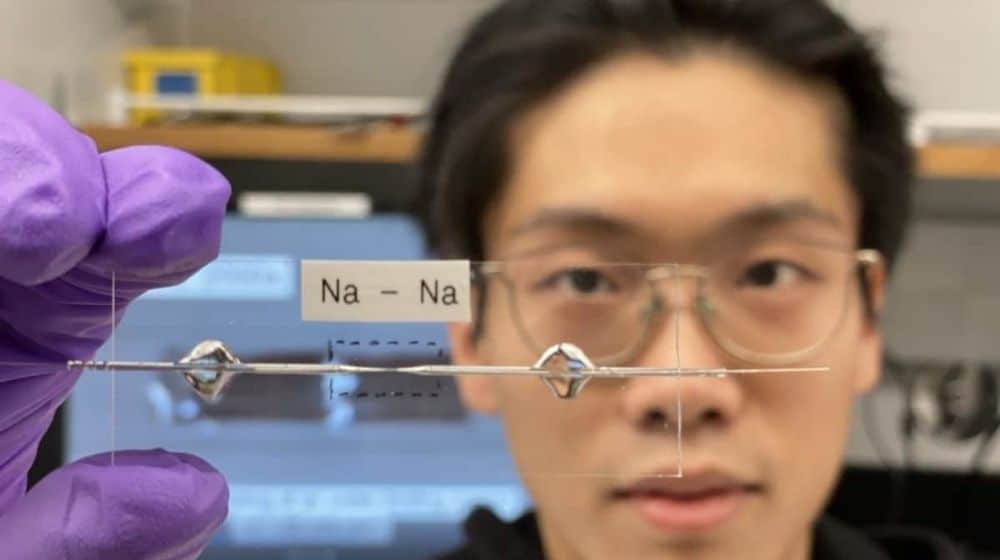Lithium-ion batteries have revolutionized the way we power our gadgets. However, due to the problem of dendrites (spiky lithium structures that accumulate on the anode while charging) that can pose a serious safety hazard by short-circuiting the battery, scientists have been working towards making even more powerful variations.
In an attempt to eradicate the dendrite problem, scientists and engineers have been trying to develop sodium batteries for about a decade, by replacing both the lithium and cobalt used in conventional lithium-ion batteries with cheaper, more environmentally friendly sodium and a recent breakthrough suggests that the researchers might just have found the solution.
A team of researchers at the University of Texas, funded in part by the U.S. National Science Foundation, have developed a stable sodium-based battery material. This new technology resists dendrite growth and can recharge as fast as a traditional lithium-ion battery but unlike lithium-ion batteries, it has the potential for providing higher energy output.
How it Works
The underlying mechanism behind this new battery technology involves rolling a thin sheet of sodium metal onto an antimony telluride powder, then folding the sheet repeatedly to create a new anode material. This results in a uniform distribution of sodium atoms that can resist the formation of dendrites and corrosion, hence providing a safer and more stable solution.
Despite the uncertainty in the world, the demand for stationary energy storage is growing at an exponential rate across a wide range of applications. In most cases, a stationary energy storage system implies the use of batteries along with other components. Scientists believe that to meet the ever-increasing demand, this technology could provide a stable, sustainable, and less expensive solution.






















